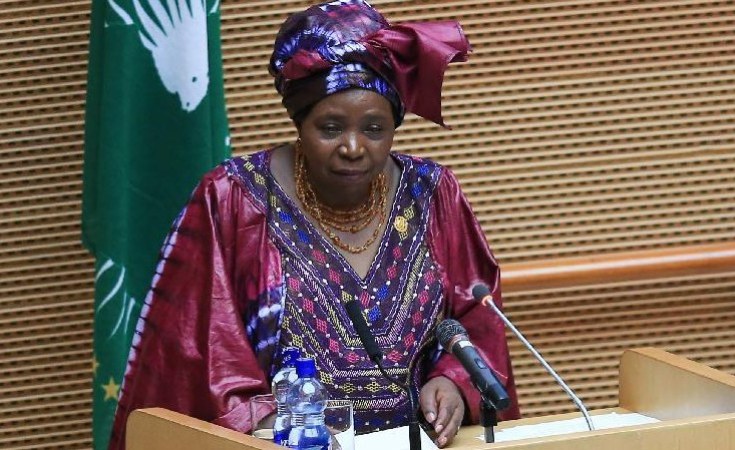In September, world leaders pledged nearly US$13 billion to tackle some of the world's deadliest diseases through the Global Fund to Fight AIDS, Tuberculosis (TB) and Malaria. In a time of significant global uncertainty and strife, this was a remarkable display of commitment to the health and well-being of the most vulnerable populations on the planet.
African leaders have committed to ending AIDS, TB and malaria since 2001, and over the past few decades, extraordinary global solidarity and resources have helped transform this fight against Africa's three biggest public health threats. The Global Fund has been key to this progress, having saved 20 million lives worldwide and averted millions of new infections.
But donor resources are not limitless. In order to build on our progress and accelerate the decline of these diseases, we need to marshal resources and leadership from the countries that, tragically, know them best – many of which are in Africa.
I am all too familiar with the devastating impact of AIDS, TB and malaria on the people of my continent, with hundreds of millions of Africans at risk of these diseases every day. Encouragingly, African governments have taken several important steps to meet the evolving demands of the AIDS, TB and malaria response.
Several African countries committed resources to the Global Fund for its latest replenishment. Pledges from South Africa, Benin, Cote d'Ivoire, Kenya, Namibia, Nigeria, Senegal, Togo and Zimbabwe totaled approximately $34 million, demonstrating the importance African countries place on the Global Fund and sharing responsibility for ending these epidemics. As President Macky Sall of Senegal said, "In an interconnected and interdependent world, diseases know no borders." The African Union Commission commends the countries that contributed, and commits to work with more African countries for increased pledges for the next replenishment in 2018.
Furthermore, these pledges have also been made alongside significant increases in domestic investments for health by African countries, almost US $11 billion for 2015-17. This surge in resources is critical for positioning countries to take ownership over their health programmes and lead the fight against these diseases.
The 54 countries that make up the African Union (AU) understand how important this is, which is why we place special emphasis on identifying African-sourced solutions to our health challenges. For example, in 2012, country governments adopted the African Union Roadmap on Shared Responsibility and Global Solidarity for AIDS, TB and Malaria, which outlined a path for strengthening country leadership on the essential building blocks of our health systems – including the areas of financing and access to medicines. In 2016 African leaders adopted the Catalytic Framework to end AIDS, TB and Malaria in Africa by 2030 with a clear business plan and bold targets.
These steps are important, but we have only just begun the work necessary to achieve our ambition of ending these epidemics for good. We still need to dramatically reduce infection rates and expand access to lifesaving medicines and tools. We also need to build the foundation of healthier communities: strong, efficient health systems and health coverage for all.
To make this possible, African countries will need to invest even more in domestic health programmes. Increases in health financing over the last 10 years are promising, but fall short of our commitment to allocate at least 15 percent of our annual budgets to the health sector – a goal we set 15 years ago at the signing of the Abuja Declaration. That's why, this summer, the AU launched a scorecard on domestic financing for health, which will measure progress toward our commitments for AIDS, TB and malaria, and hold countries accountable.
The benefits of increasing our investments far exceed the costs, and go beyond lives saved. In fact, we've seen health improvements in low- and middle-income countries drive nearly a quarter of income growth in just a decade. Between 2007 and 2011, every $1 per capita invested in the fight against malaria in Africa resulted in an increase in per capita GDP of nearly $7. We cannot let underinvestment in the health of our people – our most precious resources – hamper our development.
However, African countries also face competing health and development priorities, and many are not yet ready to drive critical health programmes independently. This means that donor support will remain vital in the coming years so that we can continue taking steps to strengthen our health systems and ensure we don't lose ground against AIDS, TB and malaria.
With renewed commitment, and the support of the global community, I have never been more optimistic about our ability to put an end to the scourge of AIDS, TB and malaria and achieve a healthier, more prosperous future together.
H.E. Dr. Nkosazana Dlamini-Zuma is chairperson of the African Union. She is the former Minister of Health and former Minister of Foreign Affairs of South Africa.


